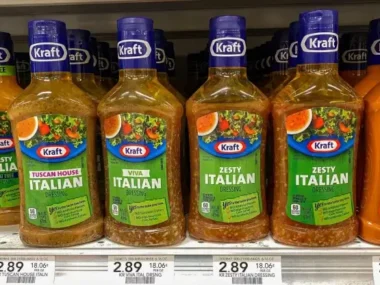You can’t deny it; scallops have taken the seafood world by storm, appearing on menus and dinner tables all over the globe. But amidst this seafood sensation, you might find yourself pondering the age-old question: Are scallops healthy? Can we indulge in them guilt-free without any worries?
Well, brace yourselves, seafood lovers, because the answer is a resounding YES! Scallops have earned their reputation as one of the healthiest seafood options out there. So, let’s dive into the delectable details and explore why these succulent treasures from the ocean floor are a fantastic addition to your healthy diet.
What are Scallops?
Let’s unravel the mystery behind those delectable morsels we call scallops. In simple terms, they belong to the bivalve mollusk family, sporting two shells just like their cousins, oysters, and clams.
Now, the mouthwatering part that ends up on our plates is the interior – a luscious white adductor muscle. This muscle is responsible for opening and closing the shell, making it the star of the show. Oh, and don’t forget about the coral, that vibrant orange section inside; it’s also edible, but in the US, it’s usually not served.
When it comes to scallops, we’ve got two main varieties: bay scallops and sea scallops. The bay scallops are the cute little ones, about the size of a dime, while their sea scallop counterparts are true giants, boasting a diameter of up to two inches. A true case of big and small in the world of scallops!
Are Scallops Healthy and Good for You?
When it comes to health, scallops are truly a standout! Packed with omega-3 fatty acids, these gems from the sea are like a heart’s best friend. Omega-3s, the superheroes of healthy fats, play a vital role in maintaining overall heart health by regulating cholesterol levels.
Magnificent Magnesium: A Heart’s Ally
But wait, there’s more! Scallops are also an excellent source of magnesium, a mineral that comes with its own set of heart-protective benefits. Magnesium helps relax blood vessels, leading to lower blood pressure and improved circulation. With a dose of magnesium from scallops, your heart can breathe a sigh of relief.
Stroke Defense with Omega-3s
If you’re concerned about stroke risk, it’s time to put omega-3 fatty acids on your menu, and scallops have got you covered! These fabulous fatty acids increase blood flow and reduce the formation of those pesky blood clots that could lead to strokes. In fact, a study showed that individuals who consumed omega-3 fatty acids 3-4 times a week reduced their stroke risk by a whopping 48%!
Vitamin B12: A Heart-Healthy Duo
Now, let’s talk about Vitamin B12. Scallops aren’t just one-trick ponies; they’ve got this vitamin in abundance too. Vitamin B12 plays its part in supporting heart health, making it a fantastic companion to those heart-loving omega-3s.
Magnesium Magic: Beyond the Heart
But hold on, magnesium isn’t just about the heart! It has more tricks up its sleeve. For those struggling with muscle cramps, scallops can come to the rescue. The magnesium in scallops helps reduce muscle cramping and promotes tissue repair and muscle strength growth. And if you’re concerned about osteoporosis or mobility-related conditions, scallops can lend a hand in reducing your risk or even preventing such conditions altogether.
What are the Risks of Eating Scallops?
Generally, scallops are a safe addition to your culinary adventures, but it’s essential to be mindful of certain conditions that warrant caution. As you contemplate including these delectable treasures in your diet, take a moment to assess your own individual risk factors.
A Word of Caution for Shellfish Allergy
For those with shellfish allergies, it’s best to steer clear of scallops altogether. While they may be a delectable delicacy for many, those with allergies need to exercise extra caution and avoid any potential risks.
Mindful of Gout and Kidney Conditions
Now, let’s talk about gout and kidney conditions, including kidney stones. If you happen to fall into this category, it’s wise to be mindful of your scallop intake. These little wonders are naturally high in purine, which might not be ideal for individuals dealing with these specific health conditions. To play it safe, consider consulting with your healthcare provider before indulging in scallop feasts.
Traces of Heavy Metals
Scallops, much like their tuna counterparts, do contain traces of heavy metals such as mercury and cadmium. But fear not! The levels of these metals in scallops are typically quite low and well within safe limits for human consumption. Yet, it’s essential to keep a balanced approach and avoid excessive consumption, as high amounts of these metals can potentially lead to health issues and even contribute to cancer growth.
Can You Eat Raw Scallops?
Raw scallops, a delectable delight that’s not only safe but utterly scrumptious! When you indulge in raw scallops, their natural sweetness takes center stage, as it remains largely untouched during the cooking process. The versatility of these delicate sea treasures knows no bounds, starring raw in dishes like sushi and carpaccio, or even as a light and delightful snack.
Yet, a word of wisdom: To fully enjoy the raw goodness of scallops, paying attention to their quality is paramount. The journey from sea to plate can be a lengthy one, with sea scallops often harvested during long, two-week trips at sea. As these precious gems rest on ice during their voyage, the quality may suffer, and by the time they reach your local supermarket, they could already be 12 days old or more. Alas, the flavor may get diluted as they soak up the melted ice.
But fear not, seafood enthusiasts! To ensure your plate boasts fresh, delicious scallops and not waterlogged water balloons from yesteryear, seek out a trusted fishmonger. Someone who can provide clear knowledge about the scallop’s origin and how it was handled will be your seafood savior.
Where do the Best Scallops Come From?
When it comes to scallops, there are two distinct types to tantalize our taste buds: bay scallops and sea scallops. As their names imply, these succulent morsels hail from different waters, offering unique flavors and characteristics.
Bay Scallops: From Shallow Waters
Bay scallops are the darlings of shallow waters and serene bays. Harvested from these tranquil locations, they boast a distinct charm and flavor. However, due to dwindling domestic populations, many bay scallops are now imported from countries like China or Mexico to meet the demand for this delectable delight.
Sea Scallops: The Ocean’s Bounty
On the other hand, sea scallops are the ocean’s grand gift to seafood aficionados. Thriving in the depths of cold ocean waters all over the globe, sea scallops offer a different experience altogether. With a more expansive habitat, they present a broader range of flavors and textures, making them a favorite in many culinary creations.
How Long do Scallops Last?
Scallops, like many seafood delicacies, require some attention to stay fresh and delicious. When it comes to refrigerating these ocean gems, you’ve got a tight window of only 2 days to savor their freshness. Any longer, and you risk the unwanted company of bacteria and the unfortunate fate of food spoilage – even in the fridge.
Frozen Treasure: Preserving Scallops with Care
When you opt to freeze your scallops, you open the door to an extended shelf life, up to 3 months, but with a crucial caveat. To preserve their delightful taste and texture, avoid freezing or storing them in water. This could cause the scallops to bloat and, sadly, lose their prized flavor.
How to Store Scallops?
When it comes to storing those delectable scallops, never, and I mean NEVER, store them in water. Trust me; they’ll soak it up like a sponge, and that’s a one-way ticket to ruining their texture and flavor. Let’s keep those ocean gems at their best!
Now, here’s the scoop on scallop storage time: In the fridge, they’ll happily keep for up to 2 days. But here’s the deal – the longer you hold on to them, the more their quality will slip away, especially with store-bought sea scallops.
As soon as you bring them home, take action! Put those scallops straight into the fridge or, if you’re thinking about freezing them, get the prep going without delay. We want to minimize their exposure to unsafe temperatures, so they remain fresh as can be.
The secret is simple – get your scallops cozy in a plastic ziplock bag, and pop them right into the coldest corner of your fridge. By doing so, you’re treating them with the TLC they deserve and ensuring a culinary adventure full of freshness and flavor.
Freezing
Just like fridge storage, freezing your scallops requires a little know-how to maintain their freshness for the long haul. To freeze these delightful ocean treats successfully, opt for a moisture-resistant wrap or a trusty freezer-safe ziploc bag. And if you’re lucky enough to have a vacuum sealer at your disposal, that’s even better – it’ll work like magic!
But wait, there’s one more essential step – don’t forget to date and label your package! By adding a friendly date and label to your frozen scallops, you’ll have a clear roadmap to culinary success when it’s time to unleash them from their icy slumber.
How to Defrost Frozen Scallops?
When it comes to thawing frozen scallops, the top-notch method that ensures both safety and flavor is defrosting them in the fridge overnight. Patience is the key to perfection!
But hey, we get it – sometimes time isn’t on our side. If waiting isn’t an option, you can resort to a quick and somewhat safe alternative. Run those frozen scallops under lukewarm – not hot – water until they thaw out. Just be swift, as we don’t want those little gems to soak up too much water.
Now, here’s a golden rule: Avoid the microwave at all costs when it comes to thawing scallops. Their petite size calls for a speedy cooking time, and nuking them in the microwave will lead to a premature cook, resulting in tough and chewy scallops – a seafood tragedy!
Final Thoughts
To sum it up, scallops are an absolute delight when it comes to their health benefits. They’re a protein powerhouse, low in fat, and incredibly satisfying. Not to mention the abundance of vitamins, minerals, and antioxidants that they bring to the table. So, indulge in these seafood wonders without hesitation, knowing that your body will thank you for the nutritious treat.
With scallops, you can have your delicious seafood and your health too! So, the next time you spot those glistening scallops at your favorite seafood joint, dive right in and savor the goodness they offer. Happy eating!


